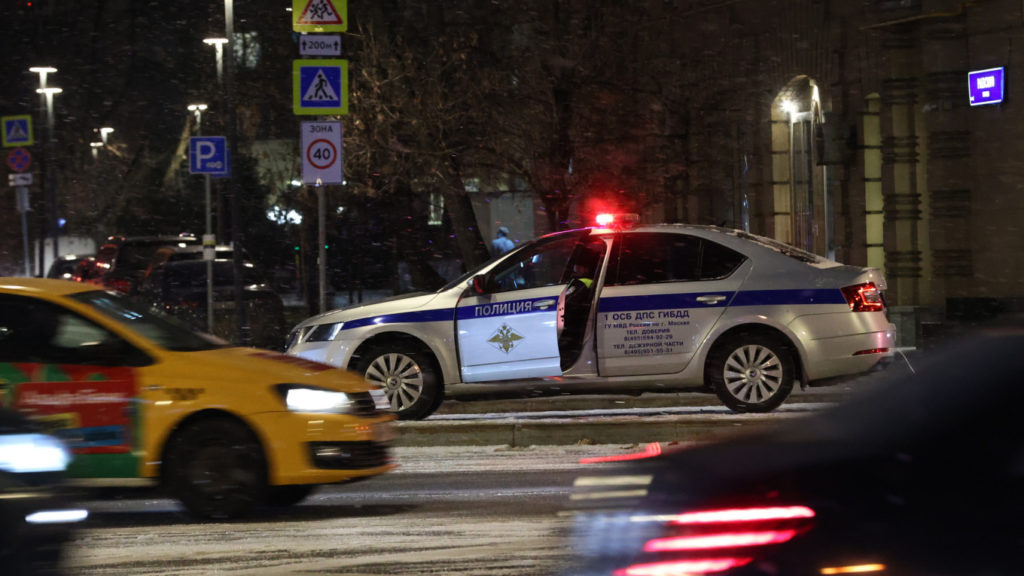Moscow police carried out raids of gay-friendly nightclubs, bars and saunas in the city center overnight, media reported.
The raids came one day after Russia’s top court banned the “international LGBT movement,” a group that does not formally exist, sparking fears of widespread persecution of LGBT people and rights groups.
Police burst into a club on Malaya Yakimanka Ulitsa where about 300 people had gathered for a party for the LGBT community, the Ostorozhno Novosti Telegram news channel reported.
The police, who raided the premises under the pretext of searching for drugs, detained an unspecified number of people, Ostorozhno Novosti said.
“In the middle of the party, they stopped the music and [the police] started to enter the halls. There were also citizens of other countries at the party. At the exit, they photographed passports without permission,” Ostorozhno Novosti quoted an anonymous eyewitness as saying.
“It was an established scheme, this is how they closed similar clubs in St. Petersburg. Someone was panicking,” the eyewitness said.
Security forces were also reported to have raided a gay men’s sauna near Tsvetnoy Bulvar.
“Everything is happening like a regular drug raid. No violations were found, but the mood was spoiled. It was indelicate in the sauna … they made everyone lie face down,” an anonymous eyewitness told Ostorozhno Novosti.
A club near the Avtozavodskaya metro station and a men’s strip club near the Polyanka metro station were also raided, the outlet reported.
In St. Petersburg, the gay club Central Station was forced to shut down Friday after its landlords evicted them over the Supreme Court’s ban on the LGBT community.
Russia on Thursday banned the «international LGBT movement,» claiming it was an extremist group in a move that cements a long crackdown on the community as the Kremlin pushes ultra-conservative social values.
The conservative turn promoted by President Vladimir Putin — often portrayed as an existential fight against Western liberal values — has accelerated since the offensive in Ukraine.
If applied to individuals, the «extremist» label means gay, lesbian, transgender or queer people living in Russia could face years in jail.

